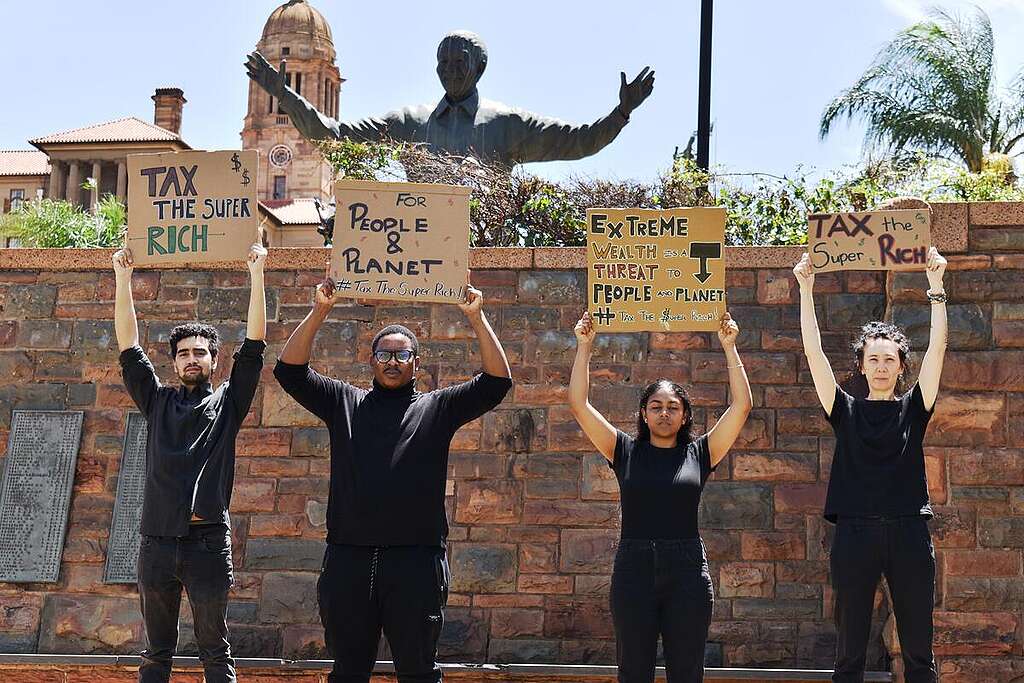
UN Finance Meet Urged to Back New Global Tax Rules
Tax is a golden opportunity to make the world a better place. But first, we need to reform global tax rules and address the deeply rooted injustices that are breaking the financial system apart.
There is no time to waste. The world is burning. Communities are battling climate breakdown, biodiversity loss and rampant pollution, hampered by deepening socioeconomic inequalities, threats to democracy and underfunded public services. Governments are struggling to find the money for people’s most pressing needs and for essential environmental and climate action.
Reform of the global financial system is long overdue. Even with the absence of the United States, the upcoming Fourth International Conference on Financing for Development (FfD4) represents a pivotal once-in-a-decade opportunity to get to the core of the problem and get the world back on a stable track.
As world leaders prepare to gather in Sevilla, Spain for the UN conference (30 June to 3 July), civil society are calling for global debt and reforms, and a rewrite of the rulebook. When it comes to the climate crisis it is dirty energy companies – not the people – that should be made to pay for loss and damage.
Amid growing geopolitical political tensions, weakened international cooperation and increasing debt burden, it is crucial that world leaders show their support for global tax reforms to deliver fair and sustainable financing for development.
Tax is a superpower and a game changer – it can be a driver of universal rights, sustainable development, and prosperity for all. However, when it comes to international development cooperation, too often the greedy interests of a wealthy few clash with priorities for our global common good. It’s time to put this right.
The top 1% owns nearly half of global wealth (statistics by Oxfam) and the top 10% is responsible for two thirds of the global emissions – while billions lack access to basic services and are forced to bear the consequences of climate breakdown. Countries are losing almost half a trillion dollars each year to illicit financial flows and profit shifting. This is money that could be used for climate action, nature protection, and to fund public social services like healthcare and education.
At the COP29 talks last year the focus was on finance. Despite the urgency of the situation and the world being on the brink of dangerous tipping points, countries were only able to commit US$300 billion per year in climate finance. This is woefully inadequate and overshadowed by the level of despair and scale of action needed. It’s also a tiny fraction of the trillions in fossil fuel industry subsidies and profits. Without new global tax rules this wildly unequal situation will continue to spiral, billionaires and corporate polluters will increase their wealth and influence, while the pressing needs of everyday people go underfunded.
At previous financing for development (FfD) conferences in Monterrey, Doha and Addis Ababa, tax reform was high on the agenda. Ten years on, the world has made real progress. Negotiations are now underway for a UN Tax Convention – a major step towards reshaping global tax rules. The convention marks a critical shift: global tax rule-making could soon move from a few rich OECD countries to a truly inclusive, multilateral process under the UN. For the first time, all member states would have a seat at the table.
Through the Convention, we can, among other things, level the currently uneven playing field by prioritising progressive taxation on high net-worth individuals and making polluters pay. Progressive taxation of income, wealth, and capital gains can help to reduce inequality while providing the funds climate, environmental and social protection. But this will only happen if the wealthy and their corporations pay their fair share of taxes.
While we celebrate this hard-won step forward, we must remain vigilant and focused as we continue to push for tax reform at the fourth financing for development summit (FfD4). The road ahead will be challenging, and government commitments to democracy, equity, transparency, and accountability will be tested. Let this moment in Sevilla represent bold, decisive hope in action for a better future for people and the planet.
Fred Njehu is global political lead for the Fair Share campaign at Greenpeace Africa.
https://www.greenpeace.org/international/story/75782/why-the-un-finance-conference-in-sevilla-must-strongly-support-new-global-tax-rules/

